The 5 key benefits of noise barriers
Effective noise reduction and mitigation of disturbance
Visual separation and protection against wind and dust
Compliance with local noise regulations and standards
Sustainable, environmentally friendly, and weather-resistant
Increased road safety along roads and motorways
Types of noise control barriers
One of the most common sources of noise disturbance is traffic, including cars, motorcycles, lorries, and public transport. Particularly in urban areas and along motorways, the constant sound of traffic can cause considerable nuisance. There are various types of soundproofing barriers designed to reduce noise and improve the living environment. Depending on the desired effect and the surrounding area, acoustic barriers can range from solid, hard materials to innovative, green solutions that also contribute to sustainability and biodiversity.

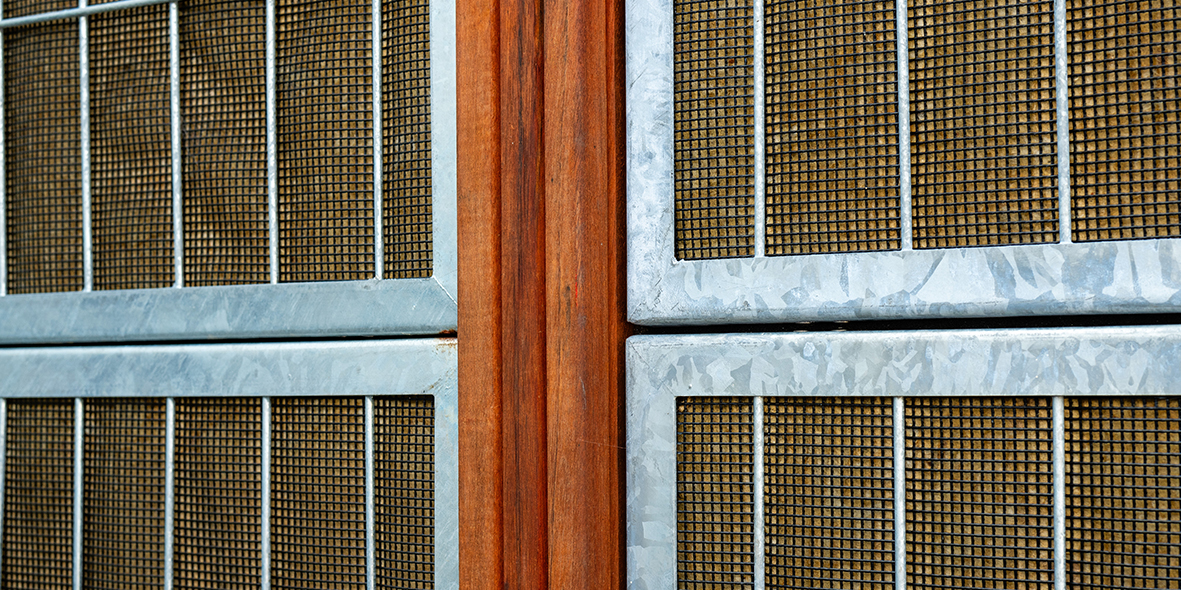
Acoustic panels
Noise-absorbing panels made from compressed stone wool that effectively reduce environmental noise by absorbing it rather than reflecting it.
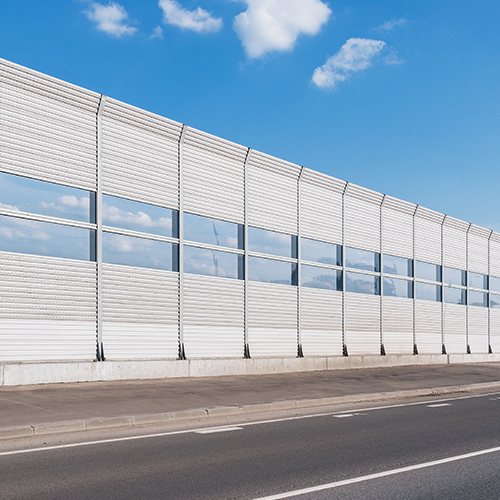
Traditional noise barriers
Solid barriers made from materials such as concrete, wood, or metal that effectively block traffic noise and offer a cost-effective solution.
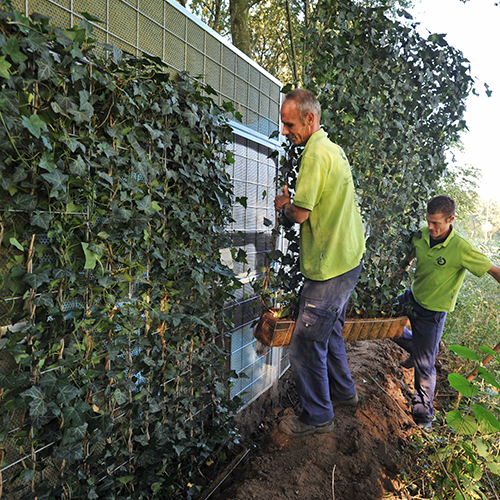
Green noise barriers
Sustainable systems with living vegetation that reduce noise, improve air quality, and contribute to biodiversity.

Earth or embankment barriers
Natural earth embankments, often covered with vegetation, that blend seamlessly into the landscape and reduce noise in an environmentally friendly way.
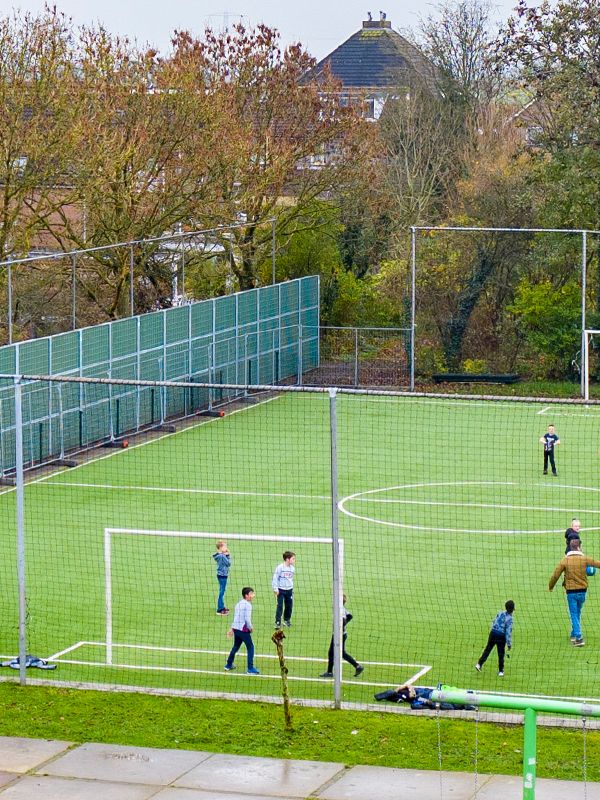

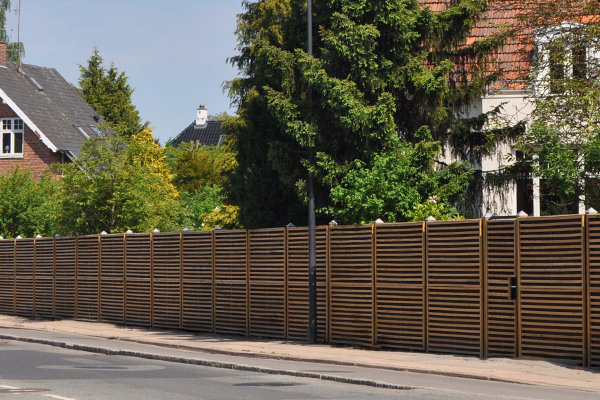
A solution for every location with noise disturbance
Soundproofing panels are versatile solutions used to reduce noise disturbance and create a more pleasant living environment. Read more about the applications of soundproofing barriers:
- Public spaces and parks
- Business parks and car parks
- Schools and sports fields
- Motorways and railways
- Residential areas and new developments
- Garden and boundary fencing
- Noise insulation for machines such as heat pumps or construction sites
Discuss the possibilities with a specialist from Mobilane
Get in touch
By submitting this application, I agree to the privacy statement
An easy process
We begin with an introductory conversation.
Budget, planning, and quotation
Installation and handover of the living wall
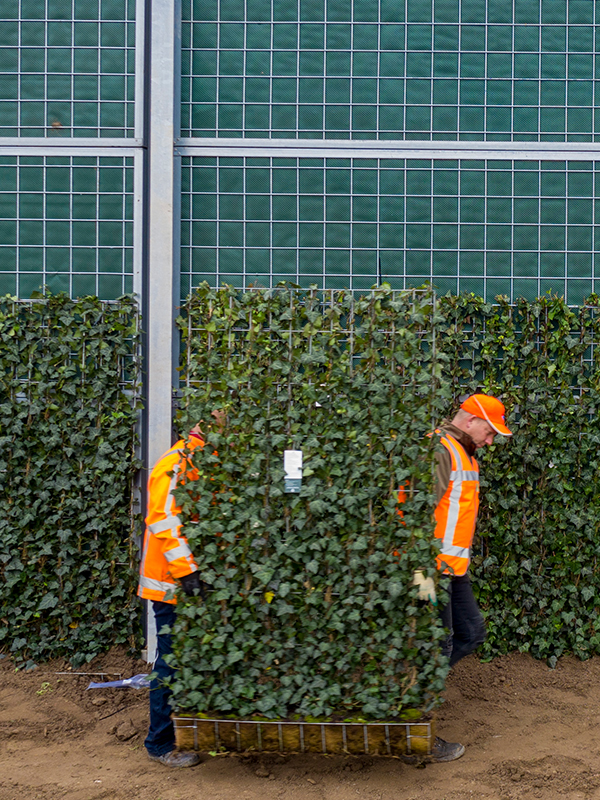
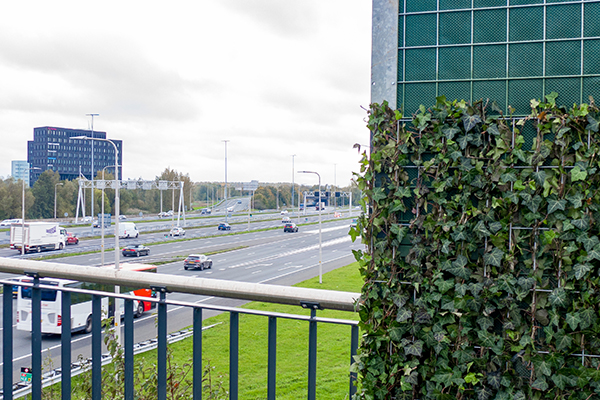
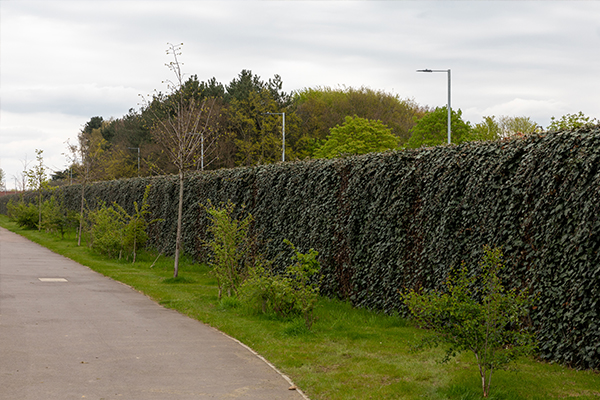
The green noise control barrier
The green noise control barrier, such as the NoiStop acoustic barrier with a ready-made hedge, is frequently used along busy (motor)ways due to its dual function: effective noise reduction and a direct, green appearance. Thanks to the fully grown hedge, it not only provides a natural barrier against noise but also contributes to improving air quality. Research shows that these green acoustic barriers capture 40-60% of fine dust from the air, making them particularly suitable for locations with high traffic. As a result, they create a cleaner and healthier living environment in densely populated and industrial areas.
Noise regulations
Governments set noise regulations to determine how much noise may be produced in specific areas. These rules help limit the impact of noise disturbance. Acoustic barriers are effective in reducing noise from external sources by blocking or absorbing sound waves.


How noise barriers can transform the living environment
Noise disturbance is a common issue for homeowners and can significantly affect the quality of life. Constant sounds from traffic, neighbours, construction work, or other environmental sources not only cause irritation but can also lead to stress and sleep problems. Especially in densely populated areas or along busy roads, silence is often hard to come by. Many people are therefore looking for ways to better insulate their homes or cleverly design their gardens with soundproof elements such as hedges or green walls. After all, a quiet living environment is essential for a healthy and pleasant sense of home.
Frequently Asked Questions
All frequently asked questionsYes, green noise reducing acoustic barriers are highly effective in reducing noise disturbance, especially when they are well designed and maintained. Plants not only absorb sound but also contribute to improved air quality, provide shade, and promote biodiversity.
Sound insulation refers to the extent to which sound is prevented from passing through the acoustic barrier. Sound absorption refers to the extent to which sound is absorbed and not reflected. NoiStop acoustic barriers are unique because they not only block sound but also absorb it.
The NoiStop noise barriers are made up of modular panels with a core of specially compressed stone wool. This construction provides a very high level of insulation, significantly reducing environmental noise. Mobilane ready-made hedges are placed against the modular panels, creating an instantly grown green wall that fully covers the acoustic barrier.
Yes, acoustic barriers can be not only functional but also aesthetically appealing. Green acoustic barriers, for example, add natural elements to the landscape. Additionally, the choice of materials such as wood can contribute to a more visually pleasing result.
The costs can vary significantly depending on the type of acoustic barrier, the required size, and the location. The height and complexity of the design also play a role in the final price.
Acoustic barriers can have both positive and negative effects on nature. Green acoustic barriers can promote biodiversity by serving as a habitat for plants and animals. Earth embankments can also contribute to a more natural appearance of the landscape. On the other hand, solid, non-living barriers can disrupt the local ecology by blocking natural migration or water flows.
Maintenance depends on the type of barrier. Green barriers require periodic maintenance, such as trimming plants, replacing sick or dead vegetation, and ensuring adequate water and nutrients.
Discuss the possibilities with a specialist from Mobilane
Get in touch
By submitting this application, I agree to the privacy statement















